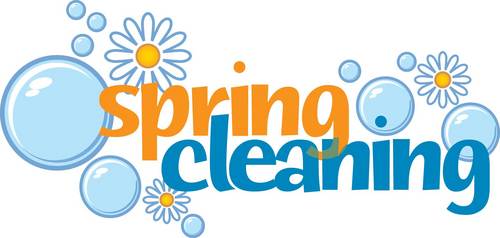Powerful Pinterest Updates
Pinterest has released some exciting new updates which will allow your business account to pack a punch. First, I want to remind you to take a look at my previous post The Power of Pinterest. These are points I covered with the ACCP – Association of Club Catering Professionals at the national conference. Review this post before watching today’s video and learning about these updates. You’ll have a much better understanding of why these current updates are SO awesome!
The “I don’t have time for social media” Excuse
How many of you have ever said, “I don’t have time for social media?”
I know I hear it from potential clients, and even from team members of current clients.
A Helpful Guide for Graduates
When I speak with students and student-athletes, I often ask the question, “How many of you have a LinkedIn account?” I am always shocked by how few people raise their hands. So with graduation approaching, and thousands of young adults about to enter the professional world, I was inspired to create a helpful guide, “5 Social Media Tips for Graduates”. It’s ready to share with students and student-athletes who need to clean up their social media accounts and online profile.
In this week’s video, I review what tips are in the guide, and why it’s helpful for graduates. Of course, these five tips are helpful for anyone who wants to polish their personal brand!
Here’s the link to download and view the guide: http://goo.gl/QJRqm0 – Please share the link with your friends and colleagues, and be sure to forward to your students, student-athletes and graduates!
Six Steps to Social Spring Cleaning
Since we celebrated the start of spring this week – so sorry to those of you who are not yet enjoying spring-like weather! – I thought I would update this post which first appeared last year around this time. The significance of this topic actually warrants an annual post.
One of the little pieces of advice I frequently give for managing social media is to make time once per month to review your social media accounts. As these platforms often change, your settings may change, along with the functions and features of the site. If you don’t make the time once per month, then I hope you will at least take a moment to “spring clean” your social media accounts, pruning and watering your network at least once this year.
6 Steps to Social Spring Cleaning
Think of these first two steps as housework. We’re inside and we have two key tasks we need to take care of before we can have a little fun tending to the spring garden:
1. Protect
Just as you would put on a pair of gloves to protect your hands before you use bleach, your accounts require protection, too. Let’s start with your login information. When was the last time you updated your passwords? Several social sites have had security breaches in this past year, as well as major retailers. Take a moment to change your passwords and better protect your accounts. Do not use words like “password” or “admin,” your name or your birthday in your password. Combinations of numbers and letters, upper and lower case are advised. While it is not suggested by most digital gurus, I do actually keep a written list of my passwords, as I have different passwords for each account (and my password memory isn’t that stellar). Do not use the same password for all of your accounts. You definitely do not want to use the same password for your bank account as you do on Facebook. Mercy!
2. Refresh
Next, make sure you review the security and privacy settings. Social media sites are continually evolving and often release new features. When they do, it’s possible that some settings revert to default. This is more often the case with Facebook. Go through your account and privacy settings and make sure that you understand how the site functions. LinkedIn’s settings are also multi-layered. Are you visible to only the people you want to be visible to? Refresh your profile data and make sure it reflects you accurately. Coordinate your bio/about me/profile sections across all your sites so that you are branded across each channel where you are active.
Now it’s time to do a little gardening and improve the health of your networks:
3. Weed
If you don’t actually know the folks you are friends with on Facebook, not sure why you follow some of those folks on Twitter, or cannot find value in your LinkedIn connections, this is a time to unfriend, unfollow and disconnect. Be certain about who you are interacting with on any of the social sites. It is significant to recognize that you and your personal brand are associated with the people in your digital networks. You would not allow unsightly plants grow wild in your manicured garden. Don’t allow inappropriate contacts to influence your network and image. Remove the weeds.
4. Organize
Both Facebook and Twitter offer a list function which is amazingly helpful in organizing your contacts. I have created lists on Facebook around how I know people. On Twitter, I organize my Tweeps by category/profession or topics they tweet about. A fabulous tip for the Twitter lists – you don’t have to follow people to put them on a list. Twitter lists are still one of the most under-used and under-valued functions on Twitter. My lists really help me find valuable content and stay up-to-date with my favorite accounts. This is an older blog post, but still relatively accurate in understanding how to create your lists on FB and Twitter: Make That List!
5. Plant
Since you’ve already gone through your contacts and removed the weeds, you should have some empty pots to fill. Find a few key contacts that you are not yet connected to and plant those seeds! Send them a nice note on LinkedIn as to why you want to connect. Use Twitter’s suggestions of who to follow. See who’s signed up for Instagram or Snapchat and make a connection. You can even follow some big brands to learn how they are using these platforms, planting some ideas into your head as to how you will leverage these networks.
6. Grow
Take some time on LinkedIn to endorse your connections for their skills. It’s a nice way to let them know you’ve remembered them and might spark a beneficial reconnection. They will likely return the endorsements and help you build your profile. Tweet to someone you haven’t conversed with in awhile or send a private message to an old friend on Facebook. Social media is designed to help you stay connected to family, friends and professional contacts. Take advantage of these features to allow your garden of networks to bloom.
BONUS: Lastly, take out your calendar and schedule 30 minutes each month to go through your social media settings. (So that you don’t begin to rely on my annual reminder in spring!) A monthly check-in will allow you to stay on top of new features, keep those weeds at bay and enjoy social networks which are active, vibrant and productive.
Happy Social Spring Cleaning!
Facebook Likes and Reputation Management
When I have the opportunity to speak with college students – student-athletes, Greeks or graduate students – I am always curious which point of the presentation will resonate most. Of course, college students believe they already know everything they need to know about social media and assume they are “doing it right.” So when I use examples from their own profiles, posts which are embarrassingly bad, they do tend to perk up and realize they have room to improve their communication skills.
This week, I was so pleased to speak with student-athletes at Cal State San Marcos. Athletic and Club Sport athletes joined me to learn how they can use social media and communication to achieve their goals.
During the presentation, I pointed out that one’s reputation also stands upon the types of posts and things you like and the people you associate yourself with online. Some of the students have liked more than 1000 Facebook Pages. I cannot even fathom what these Pages are, but with a quick glance over many profiles, they are not Pages which work to build a good reputation.
We also discussed the accounts they were retweeting. When Twitter handles like @ReallyStonedPanda and @WeedReport pop up in someone’s news feed, it’s a clear indication that they enjoy the content these accounts produce. Retweeting them is associating yourself with them and their content. And as you can gather from these two examples, this type of association does not work to build a good reputation.
Wouldn’t we love to believe that it’s just college students who do not take care with what they like and who they retweet? Many seasoned professionals have room to improve their skills, as well. So in this week’s video, I mention a few social networks and what you need to take care of to maintain a positive profile and manage your reputation.
A quick breakdown:
Facebook – Be mindful of the Pages you like and the posts you like, comment on, and share. Make sure your “friends” are people you actually know.
Twitter – Take care with who you follow AND who follows you. You are associated with both. Double check the Twitter handle and content of the accounts you retweet.
Pinterest – Follow people and businesses who have good content and who are reputable. Repinning pictures which are linked to “spammy” sites is not a good practice.
LinkedIn – Accept invitations from people you know, have done business with and who add value to your contact base. Remember my advice from my networking video – You want to be able to connect the people in your network. Help them in their business so they will help you with yours. (You can also check out the blog post on networking, too.)
YouTube and Blog Comments – Often overlooked, your comments on blogs and videos says a lot about you. What videos are you watching? What types of blogs do you interact with? If they are controversial on any level, your interaction with them paints you in a negative light. Your comments are discoverable online.
Finally, please remember that NOTHING online is private. It doesn’t take much to learn about a person with a simple Google search and a bit of browsing through social sites. When the recruiter or admissions officer, the media or your colleagues take a tour of your online profile, what will they find? And what will the things you like and the people you associate with say about you?
Tell me in the comments if you are a person who is diligent about managing your reputation. Do you already take care with what you like and who you follow? What other things do you do to protect your brand? Share your advice in the comments! Thank you!











